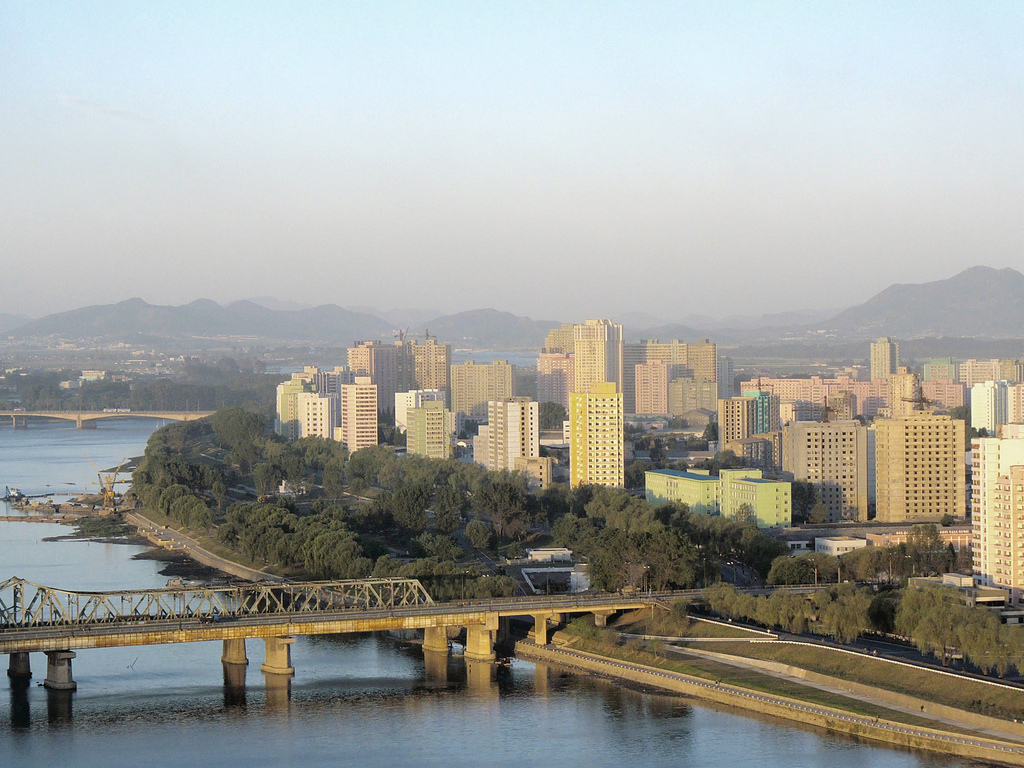The Peninsula
North Korea Post-Kim: A Continuing Need for Strategy
Published December 27, 2011
Category: North Korea

By Michael J. Mazarr
The most significant thing about the dramatic change in North Korea is how little has changed.
Kim Jong-il has died, inaugurating a period of complex maneuvering and potential instability within the North’s ruling clique. The succession to his son Kim Jong-un will be perilous: The regime’s legitimacy is grounded in personalities, not deep history (despite the best efforts of North Korean propagandists) or effective governance. Eternal president Kim Il-sung personifies the regime; legitimacy flows from him.
It flowed fairly directly to his son, who also benefited from years to solidify his position in the hierarchy. Kim Jong-un has had far less of an opportunity to build a power base—and besides that, most indications from defectors and those in touch with North Koreans suggest that the populace simply doesn’t know the youngest son in any meaningful way.
For all that uncertainty, though, the commentary in recent days has been a bit breathless. North Korea is about to topple over. It’s time to end our patience with the regime. Everything, it seems, changed when Kim Jong-il died.
Except that, in another way, nothing changed.
The new North Korean challenge for Seoul and Washington is a more complicated version of the old challenge. All the same dilemmas are still in effect. The same strategic choices loom.
Put simply, North Korea is a strategic conundrum: A provocative state too powerful to punish, with a nuclear arsenal it seems determined to keep and a large sponsor next door that views instability as a greater risk than the regime in Pyongyang. That is the essential strategic situation in the North; it generates paralyzing dilemmas for U.S. and allied policy; and it is unaffected, in its essentials, by Kim Jong-il’s death.
There is new information that, when Kim died, the United States was on the verge of a deal—food aid in exchange for some sort of suspension of the North’s uranium program and other concessions. Such interim bargains, like the Agreed Framework back in 1994, make all the sense in the world, insofar as they help constrain a hugely problematic threat. But no one should confuse them with true denuclearization, which has little prospect of occurring. That’s especially true in the wake of the Libya operation: Gaddafi took the West’s offer of trade in exchange for disarmament, North Korean hard-liners have surely said, and look what happened to him. (In fact, North Korea publicly castigated Libya for surrendering its arsenal.) And a transitional government will be far less bureaucratically capable, or psychologically willing, to make major sacrifices in the one weapons system probably credited with keeping the North secure.
Next year was already shaping up as the decisive moment in the regime’s history, and that is now doubly true, in ways that will intensify the dilemmas it poses for U.S. and allied diplomacy. The regime created its own legitimacy threshold, promising achievement of a “strong and prosperous nation” domestically; it has also pointed to 2012 as the moment to become a recognized nuclear weapons state, a step bound to provoke new confrontations with the United States, the South, and the world community. Layered on top of these twin challenges is now the requirement to settle any power disputes within the leadership group and accelerate an incompletely-prepared succession.
U.S. policy toward North Korea is focused on one overwhelming goal—denuclearization. But if this is infeasible in the short-term, the question then becomes: What is the driving objective of U.S. North Korea policy? Much thought has gone on within the U.S. and South Korean governments—especially over the last year or two—about scenarios for change within North Korea. It makes perfect sense to press for partial nuclear deals. The cautious U.S. rhetoric after Kim’s death has struck just the right tone. But for years there has been an absence of broader strategic design.
Kim Jong-il’s death offers an opportunity to consider new avenues to balance the many dilemmas inherent in the North Korean puzzle. The time might be right, in fact, for the approach laid out in a recent KEI report which I co-authored—an effort to empower market forces and agents of social change within North Korea through selected trade, human exchanges, and targeted assistance programs.
North Korean society has undergone a dramatic transformation, with market forces overtaking the command economy in the mindset of many of the people. The undercurrents of reform are well established, and targeted outside engagement could accelerate the process, drawing North Korea toward a more stable, globally integrated future. In some ways, the time to have put such a process in place would have been before Kim Jong-il died; the best bets are that a transitional regime will not be confident enough of its authority to risk stability with expanded foreign contacts.
Yet there are also reasons to test the new regime, after a necessary mourning period. Top advisor Jang Song-taek is rumored to be an advocate of economic reform. Kim Jong-un himself was schooled in Switzerland and may have an appreciation of the need for change. With 2012 arriving, the regime may feel a need for economic and social benefits to trumpet.
There is good reason, in other words, to build a revised strategy around an objective of partnering with well-established forces within North Korea to encourage progress, reform, and change. The regime will see many elements of this as a threat, and do its best to constrain them. But the lesson of other similar regimes is that their efforts cannot succeed forever. A strategy of targeted engagement, combined with offers of confidence building measures to avoid misunderstandings, is the best response to the new/old challenge of North Korea.
Michael J. Mazarr is adjunct professor of security studies at Georgetown University and author of “North Korea and the Bomb.” The views expressed here are his own.
Photo from yeowatzup’s photostream on flickr Creative Commons.
